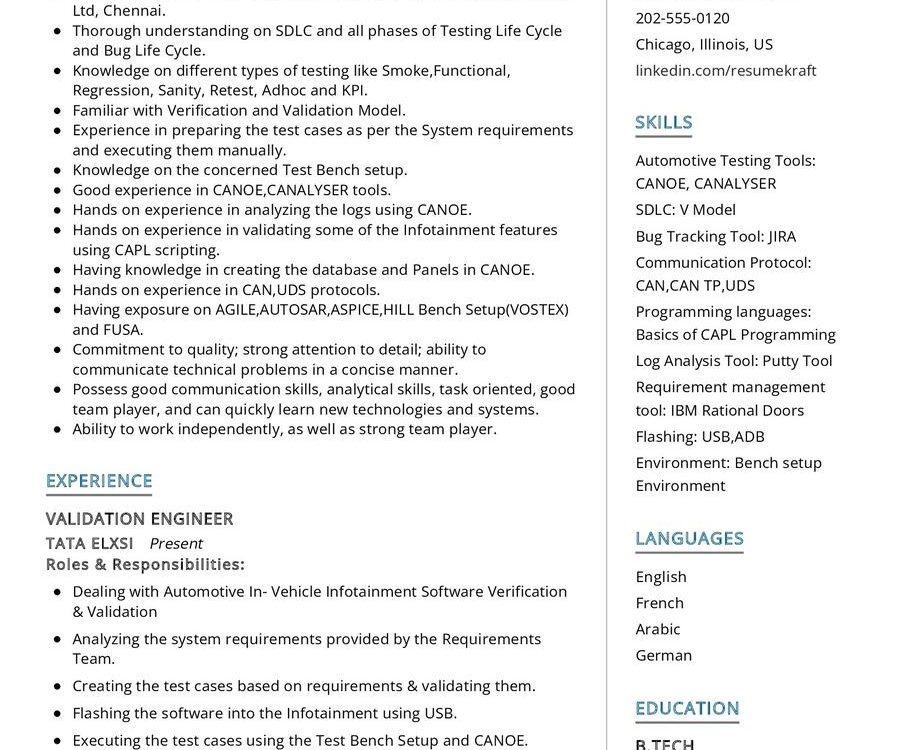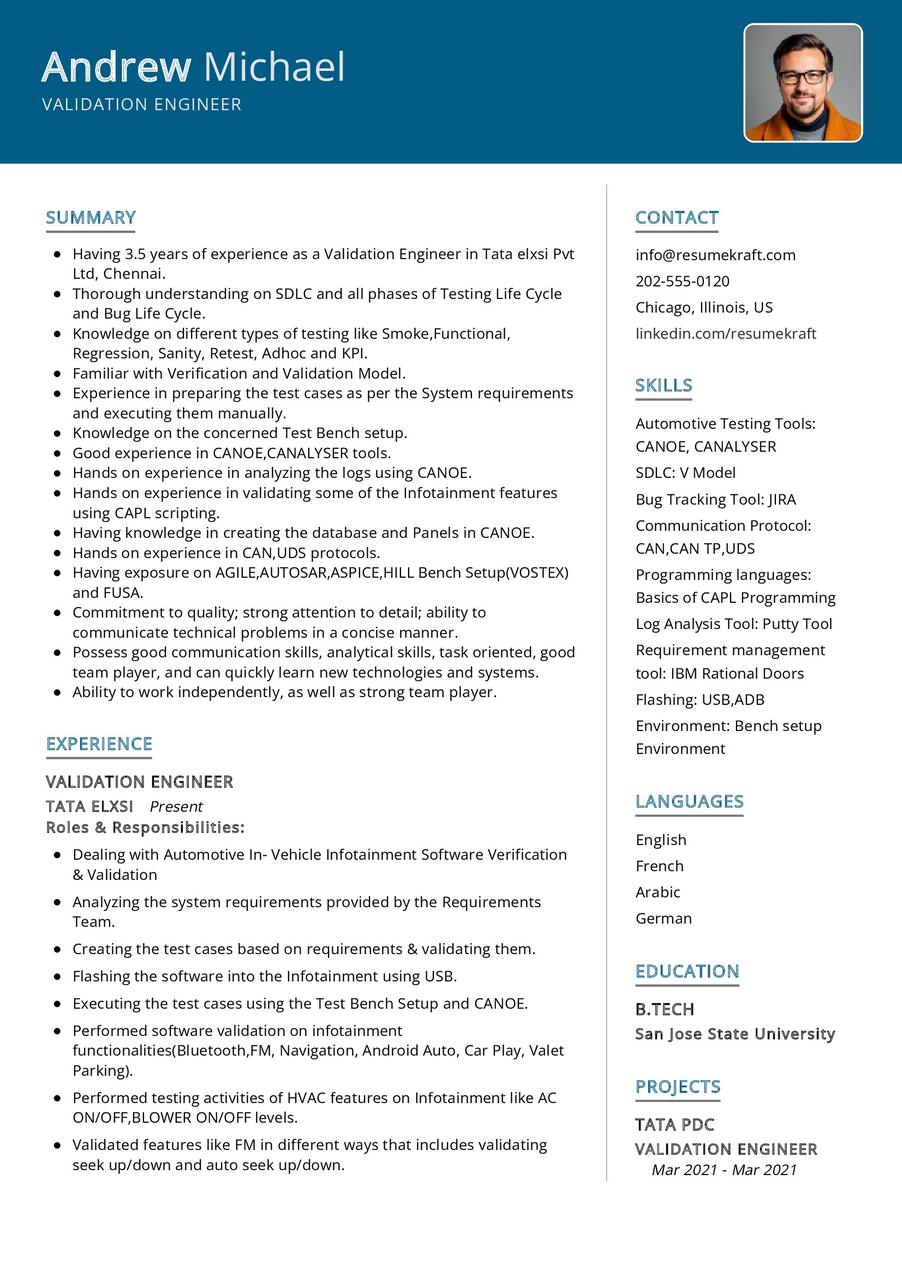Exploring the Role of a Validation Engineer
As technology advances, the role of a Validation Engineer has become increasingly crucial in various industries. This position involves a unique blend of technical expertise and attention to detail, ensuring that systems and processes meet the required standards. Let’s delve into the multifaceted role of a Validation Engineer, understanding the key responsibilities and the skills necessary to excel in this dynamic field.
Validation Engineer Job Requirements
Embarking on a career as a Validation Engineer requires meeting specific prerequisites to navigate the complex landscape of validating systems and processes. Here are the essential requirements for this role:
- A Bachelor’s or Master’s degree in Engineering, preferably in a related field such as Electrical, Mechanical, or Chemical Engineering.
- Comprehensive knowledge of validation protocols, documentation, and regulatory standards applicable to the industry.
- Hands-on experience in executing validation activities, demonstrating a trajectory of increasing responsibility.
- Strong analytical and problem-solving skills, vital for identifying and addressing potential issues in the validation process.
- Excellent communication skills to collaborate with cross-functional teams and articulate validation results effectively.
- Familiarity with validation tools and methodologies, staying updated with industry best practices.
- Attention to detail and the ability to work under pressure, ensuring the accuracy and integrity of the validation process.
Securing additional certifications in validation processes can significantly enhance your profile in the competitive job market.
Responsibilities of a Validation Engineer
The role of a Validation Engineer is multifaceted, encompassing various responsibilities to ensure the integrity and compliance of systems and processes. Let’s delve into the core duties that define this role:
- Developing and executing validation protocols for equipment, systems, and processes.
- Collaborating with cross-functional teams to ensure alignment with quality and regulatory requirements.
- Performing risk assessments and implementing mitigation strategies to address potential validation challenges.
- Reviewing and updating validation documentation, maintaining accurate and up-to-date records.
- Leading validation projects, overseeing timelines, and ensuring successful project completion.
- Conducting training sessions for team members on validation procedures and best practices.
- Staying informed about industry trends and evolving validation standards to implement best practices.
Each responsibility contributes to the overall success of the validation process, demanding a combination of technical acumen and project management skills.
Validation Engineer CV Writing Tips
Crafting a compelling CV as a Validation Engineer requires highlighting your unique blend of technical skills and validation expertise. Here are some tips to enhance your CV and stand out in the competitive job market:
- Emphasize your hands-on experience in executing validation protocols, showcasing successful projects and outcomes.
- Detail your involvement in cross-functional collaboration, highlighting your ability to work seamlessly with diverse teams.
- Include specific examples of risk assessments and mitigation strategies you’ve implemented, demonstrating your problem-solving skills.
- Quantify your achievements where possible, providing metrics to showcase the impact of your validation efforts.
- Highlight any additional certifications or training you’ve undertaken to stay current with industry standards.
Your CV is a reflection of your validation journey, so make sure it effectively communicates your skills, experiences, and contributions in this specialized field.
Validation Engineer CV Summary Examples
Your CV summary serves as the first impression for potential employers, providing a snapshot of your validation career. Here are some examples to inspire your CV summary:
- “Validation Engineer with a proven track record, adept at executing validation protocols and ensuring compliance with industry standards.”
- “Detail-oriented Validation Engineer with a passion for maintaining the highest quality standards, successfully leading validation projects to fruition.”
- “Experienced Validation Engineer with a focus on risk assessment and mitigation, driving successful validation outcomes in a collaborative environment.”
Your CV summary is a concise narrative of your validation expertise, setting the stage for a more in-depth exploration of your qualifications.
Create a Robust Experience Section for Your Validation Engineer CV
Your experience section is the heart of your CV, narrating the story of your validation journey and the impact you’ve made along the way. Here are some examples to guide you in creating a strong experience section:
- “Led validation efforts for critical equipment, resulting in a 15% improvement in overall process efficiency.”
- “Implemented a streamlined validation process that reduced project timelines by 20%, contributing to cost savings.”
- “Collaborated with regulatory affairs to ensure compliance with industry standards, successfully passing all audits without findings.”
Each experience showcases your validation contributions, providing a detailed account of your achievements and the value you bring to potential employers.
Education Section for Your Validation Engineer CV
Your educational background lays the foundation for your validation career. Here’s how you can present your academic achievements in the education section of your CV:
- Master of Science in Mechanical Engineering, XYZ University, a comprehensive education providing a deep understanding of engineering principles, 2017.
- Bachelor of Science in Chemical Engineering, ABC University, the foundational knowledge for a successful career in validation, 2015.
- Certified Validation Professional (CVP), a recognition of your commitment to excellence in validation processes, 2019.
Each educational milestone signifies your dedication to acquiring the knowledge and skills necessary for success in the field of validation engineering.
Validation Engineer Skills for Your CV
Your skill set is a valuable asset in the world of validation engineering. Here are the essential skills a Validation Engineer should possess:
Soft Skills:
- Attention to detail, ensuring thorough and accurate validation processes.
- Communication and interpersonal skills, facilitating effective collaboration with cross-functional teams.
- Problem-solving abilities, crucial for identifying and addressing validation challenges.
- Project management, overseeing validation projects from initiation to successful completion.
- Adaptability, staying current with industry trends and evolving validation standards.
Hard Skills:
- Validation protocol development, a fundamental skill in executing successful validation processes.
- Risk assessment and mitigation, identifying potential issues and implementing effective strategies.
- Documentation and record-keeping, ensuring compliance with regulatory standards.
- Knowledge of validation tools and methodologies, staying updated with industry best practices.
- Quality assurance, contributing to the overall quality of systems and processes.
Each skill is a tool in your arsenal, contributing to your success as a Validation Engineer.
Common Mistakes to Avoid When Writing a Validation Engineer CV
Avoiding common pitfalls is essential when crafting your CV. Here are some mistakes to steer clear of:
- Using a generic CV template, which fails to highlight your unique validation expertise.
- Listing duties without showcasing your achievements, providing a lackluster narrative of your validation contributions.
- Ignoring the importance of a well-crafted CV summary, missing an opportunity to captivate potential employers from the start.
- Overloading your CV with technical jargon, potentially alienating non-technical readers.
- Failing to proofread your CV, which can impact your professional image and attention to detail.
Avoid these mistakes to ensure your Validation Engineer CV effectively communicates your skills and experiences.
Key Takeaways for Your Validation Engineer CV
As you conclude crafting your Validation Engineer CV, keep these key points in mind:
- Highlight your hands-on experience in executing successful validation processes.
- Showcase your ability to collaborate with cross-functional teams and contribute to project success.
- Quantify your achievements, providing metrics to demonstrate the impact of your validation efforts.
- Include any additional certifications or training to showcase your commitment to staying current with industry standards.
Your CV is not just a document; it’s a narrative of your validation journey, skills, and contributions. Best of luck in your pursuit of exciting opportunities as a Validation Engineer!
Finally, feel free to utilize resources like AI CV Builder, CV Design, CV Samples, CV Examples, CV Skills, CV Help, CV Synonyms, and Job Responsibilities to create a standout application and prepare for the [Validation Engineer] job interview.


